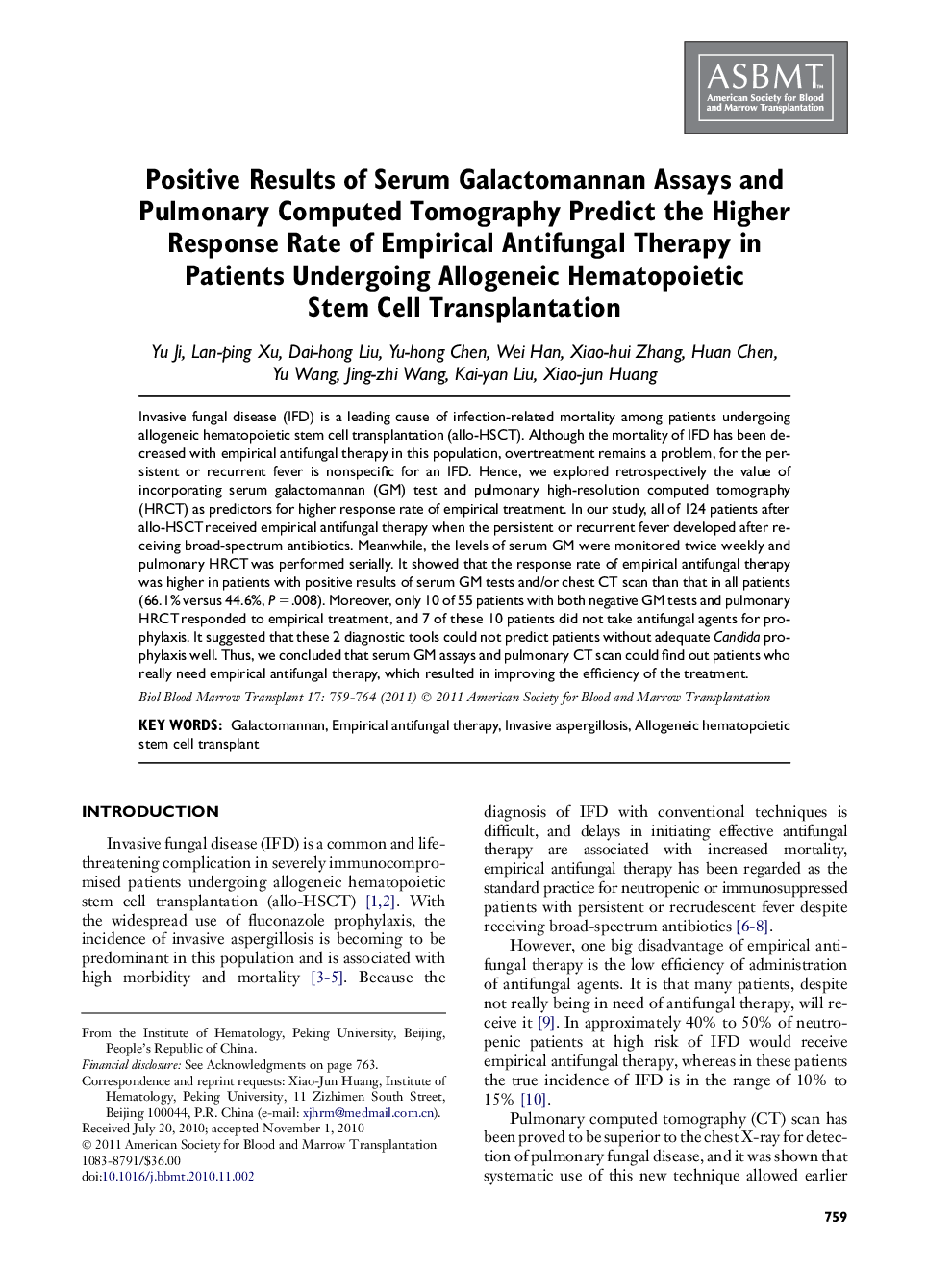| Article ID | Journal | Published Year | Pages | File Type |
|---|---|---|---|---|
| 2105536 | Biology of Blood and Marrow Transplantation | 2011 | 6 Pages |
Invasive fungal disease (IFD) is a leading cause of infection-related mortality among patients undergoing allogeneic hematopoietic stem cell transplantation (allo-HSCT). Although the mortality of IFD has been decreased with empirical antifungal therapy in this population, overtreatment remains a problem, for the persistent or recurrent fever is nonspecific for an IFD. Hence, we explored retrospectively the value of incorporating serum galactomannan (GM) test and pulmonary high-resolution computed tomography (HRCT) as predictors for higher response rate of empirical treatment. In our study, all of 124 patients after allo-HSCT received empirical antifungal therapy when the persistent or recurrent fever developed after receiving broad-spectrum antibiotics. Meanwhile, the levels of serum GM were monitored twice weekly and pulmonary HRCT was performed serially. It showed that the response rate of empirical antifungal therapy was higher in patients with positive results of serum GM tests and/or chest CT scan than that in all patients (66.1% versus 44.6%, P = .008). Moreover, only 10 of 55 patients with both negative GM tests and pulmonary HRCT responded to empirical treatment, and 7 of these 10 patients did not take antifungal agents for prophylaxis. It suggested that these 2 diagnostic tools could not predict patients without adequate Candida prophylaxis well. Thus, we concluded that serum GM assays and pulmonary CT scan could find out patients who really need empirical antifungal therapy, which resulted in improving the efficiency of the treatment.
